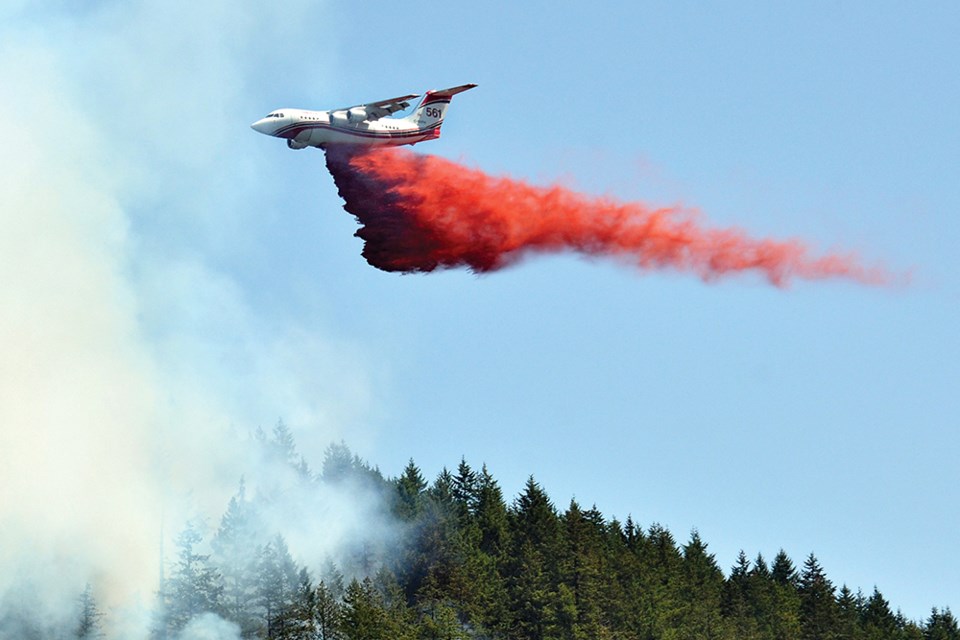Wildfires aren’t just a threat to vast swathes of forest and the wildlife that inhabit them. They’re increasingly becoming a danger for urban areas and human populations.
On Friday, at District of North Â鶹´«Ã½Ó³»Firehall #4, federal and provincial officials announced $400,000 in funding that will go to the International Association of Firefighters for a pilot project to prepare departments across Western Canada to fight wildfires near urban settings.
Through the pilot, the IAFF is training 25 instructors in Kamloops, who will then train 325 municipal firefighters on how to fight interface fires.
At the announcement, Natural Resources Minister and North Â鶹´«Ã½Ó³»MP Jonathan Wilkinson addressed the tragic events in Hawaii, where a .
“The friends, families, and loved ones of those who have lost their lives are in our thoughts today,” he said, while acknowledging the challenging circumstances on home soil, as Canadians continue to fight the country’s worst wildfire season on record.
Wilkinson called the wildland-urban interface a “crucial area” that is home to more than 10 per cent of Canadians, and requires specialized training for firefighters to operate in. “Right here in North Â鶹´«Ã½Ó³»is one example of a thriving community calling the interface home,” he said.
“The training delivered through this pilot project will increase Canada’s firefighting capacity, making sure we have more firefighters protecting the communities that need it most, while also allowing us to learn important best practices and identify barriers to effective wildland fire training,” he said. “Phase 2 of the government of Canada’s training program will fully launch next year and will be informed by the lessons learned through today’s pilot project with the IAFF and others like it.”
Wilkinson commended the IAFF, which proposed the pilot program.
What is wildland-urban interface?
Wildland-urban interface could be a park inside a city, significant grasslands or forested areas near residential neighbourhoods.
“Interface fires can happen in just about any community, and making sure that [firefighters] are trained to effectively use the skills and tactics that are required in those types of scenarios is truly important, and we look forward to providing that training across Canada,” said Mike Carter, IAFF 6th District vice president.
While firefighters prevent major devastation in many circumstances, Carter said the Hawaii wildfires and the Lytton, B.C. disaster are examples of how interface fires can impact communities.
“Beginning next year, hopefully we’ll have ongoing funding from the federal government to expand the number of instructors and then train across Canada,” he said.


